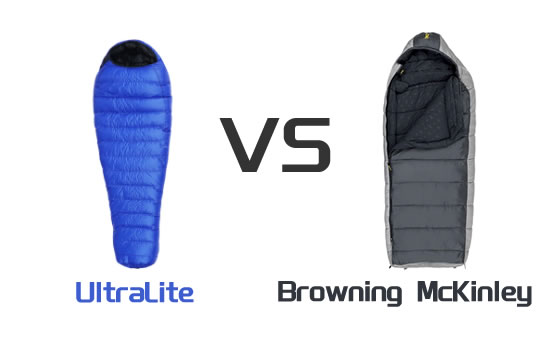Both sleeping bags excel in their respective categories, with your temperature requirements, budget, and backpacking style determining the optimal choice for your specific needs
Browning McKinley Summary
The Browning McKinley delivers exceptional value as a genuine winter sleeping bag, providing reliable 0°F protection at a price point significantly lower than most comparable alternatives. Its substantial insulation and comfortable dimensions create dependable cold-weather performance for winter campers and cold-condition enthusiasts.
While heavier and bulkier than premium options, its performance-to-price ratio is outstanding for users who prioritize thermal protection over weight considerations. For budget-conscious winter campers, occasional cold-weather users, and those who don't need to minimize pack weight, the McKinley represents one of the market's best values in genuine winter down sleeping bags.
Best for winter use & value
Western Mountaineering UltraLite Summary
The Western Mountaineering UltraLite represents the pinnacle of premium three-season sleeping bag design, combining exceptional materials with masterful craftsmanship to create a product that excels in weight efficiency, compressibility, and long-term performance.
Its remarkable weight-to-warmth ratio, superior compressibility, and exceptional durability justify its premium price for serious outdoor enthusiasts who camp frequently. For dedicated backpackers, thru-hikers, and those who prioritize equipment quality and performance, the UltraLite delivers outstanding value through its consistent reliability and extraordinary lifespan despite its significant initial investment.
Best for three-season & weight
Simplified Decision Framework
| If This Describes You... |
Your Best Choice Is... |
| You regularly camp in temperatures below 20°F/-6°C |
McKinley - provides necessary insulation for genuine winter conditions |
| You're on a limited budget but need winter protection |
McKinley - delivers reliable cold-weather performance at a value price |
| You camp primarily in spring, summer, and fall |
UltraLite - optimized for three-season conditions with minimal weight |
| You backpack long distances and prioritize pack weight |
UltraLite - saves nearly 2 pounds with excellent compressibility |
| You seek maximum long-term durability and performance |
UltraLite - superior materials and construction create exceptional longevity |
| You need occasional cold-weather protection at a reasonable price |
McKinley - provides winter capability without premium investment |
Bottom Line
The Browning McKinley and Western Mountaineering UltraLite target different needs with distinct approaches to performance and value. The McKinley excels as a value-oriented winter sleeping bag, delivering reliable cold-weather protection at an accessible price point that makes winter camping more approachable for budget-conscious enthusiasts.
The Western Mountaineering UltraLite stands as a benchmark in premium three-season performance, with exceptional craftsmanship, materials, and design creating a lightweight package that delivers consistent performance across years of use. Its higher price reflects tangible advantages in weight, compressibility, and long-term durability that benefit serious users.
Rather than competing directly, these bags complement each other by addressing different temperature ranges and user priorities. For those seeking maximum versatility across all seasons, owning both would provide optimal performance for any condition—the UltraLite for three-season use and the McKinley for genuine winter conditions—at a combined price still lower than many premium winter-only options.
